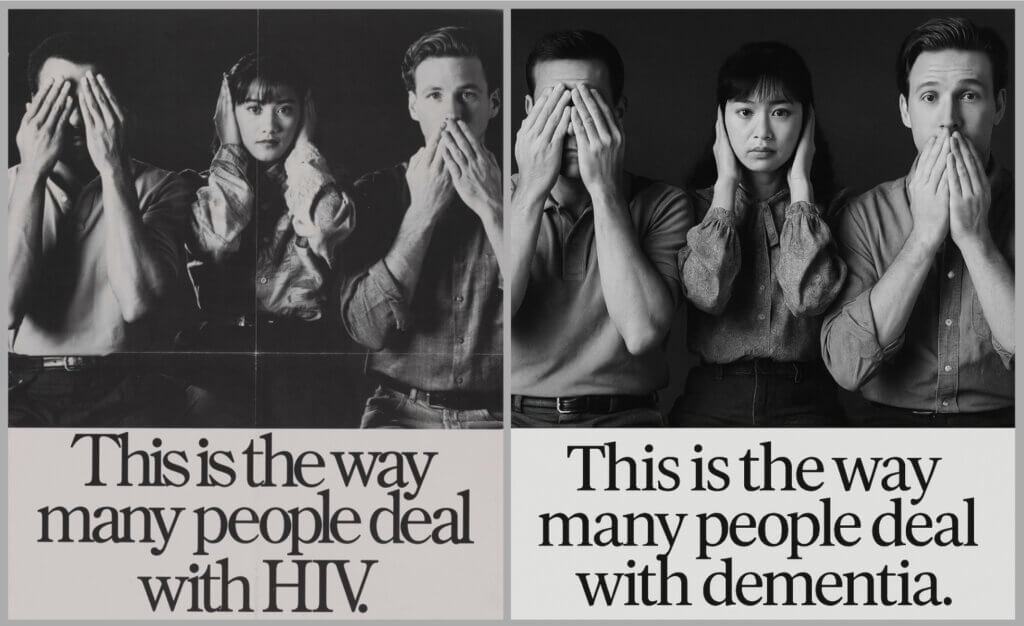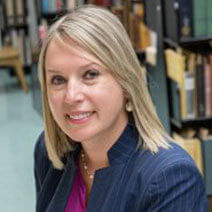The UCSF Library Artist in Residence program was first launched in 2020. The program continues to serve as an intersection of arts and sciences and brings a humanities dimension to our health sciences university. It enables the library to offer its special collections holdings for exploration, which are often perceived as exclusive and inaccessible. The Makers Lab connects artists with state-of-the-art technology and provides expert support for fulfilling their creative ideas.
We are excited to introduce the 2025 artist, Michelle Memran. Michelle commenced her year-long residency on July 1, 2025.
About the residency
Past Advocacy, Future Change: HIV/AIDS Campaigns Transforming Dementia Narratives is a multimedia project that explores how the visual language and community-led messaging of early HIV/AIDS activism can inspire more humanizing, solutions-based narratives around Alzheimer’s and related dementias today. Drawing from the UCSF Library’s extensive HIV/AIDS Epidemic Collection — including posters, public service announcements, and oral histories — artist-in-residence Michelle Memran will create new works that challenge stigma and amplify the experiences of individuals living with dementia.
Through video, audio, print ephemera, and community workshops, the project reimagines the power of early HIV/AIDS advocacy campaigns for a new context. Michelle will collaborate with dementia advocates and longtime AIDS activists, placing their voices in conversation through co-created media. The project will culminate in an exhibition and public screening at the UCSF Library, accompanied by dialogue-driven events and creative programming.
Inspired by her work as a documentary filmmaker, care partner, advocate, and Atlantic Fellow at UCSF’s Global Brain Health Institute, Michelle’s project invites us to see dementia not as a private tragedy, but as a public dialogue — one that demands visibility, creativity, and collaboration.
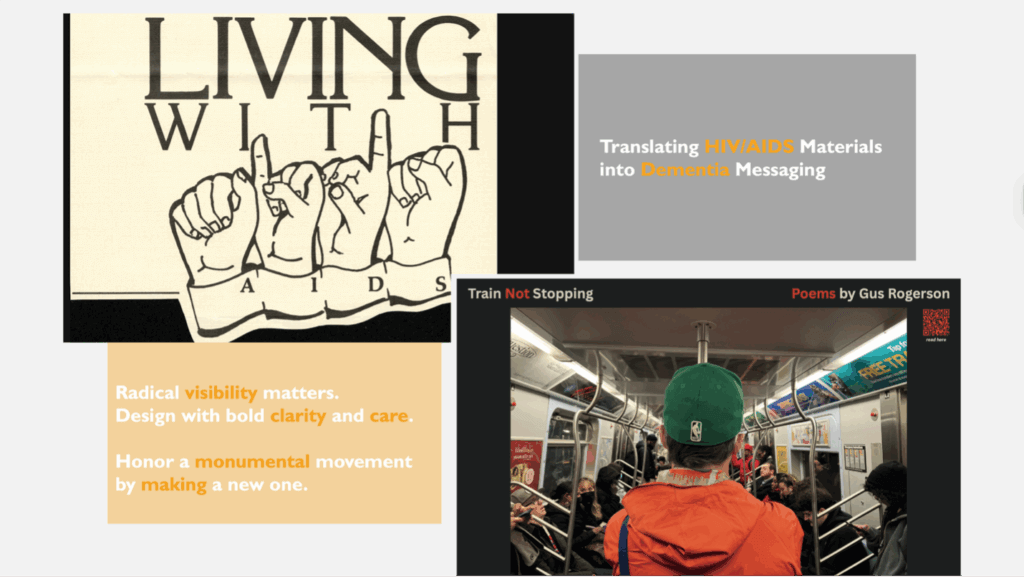
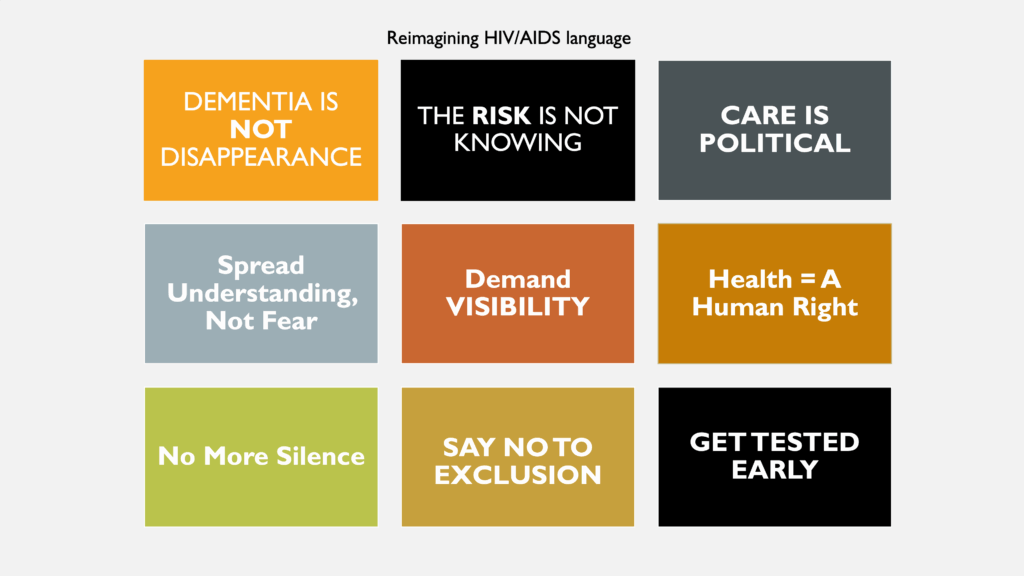
About the artist
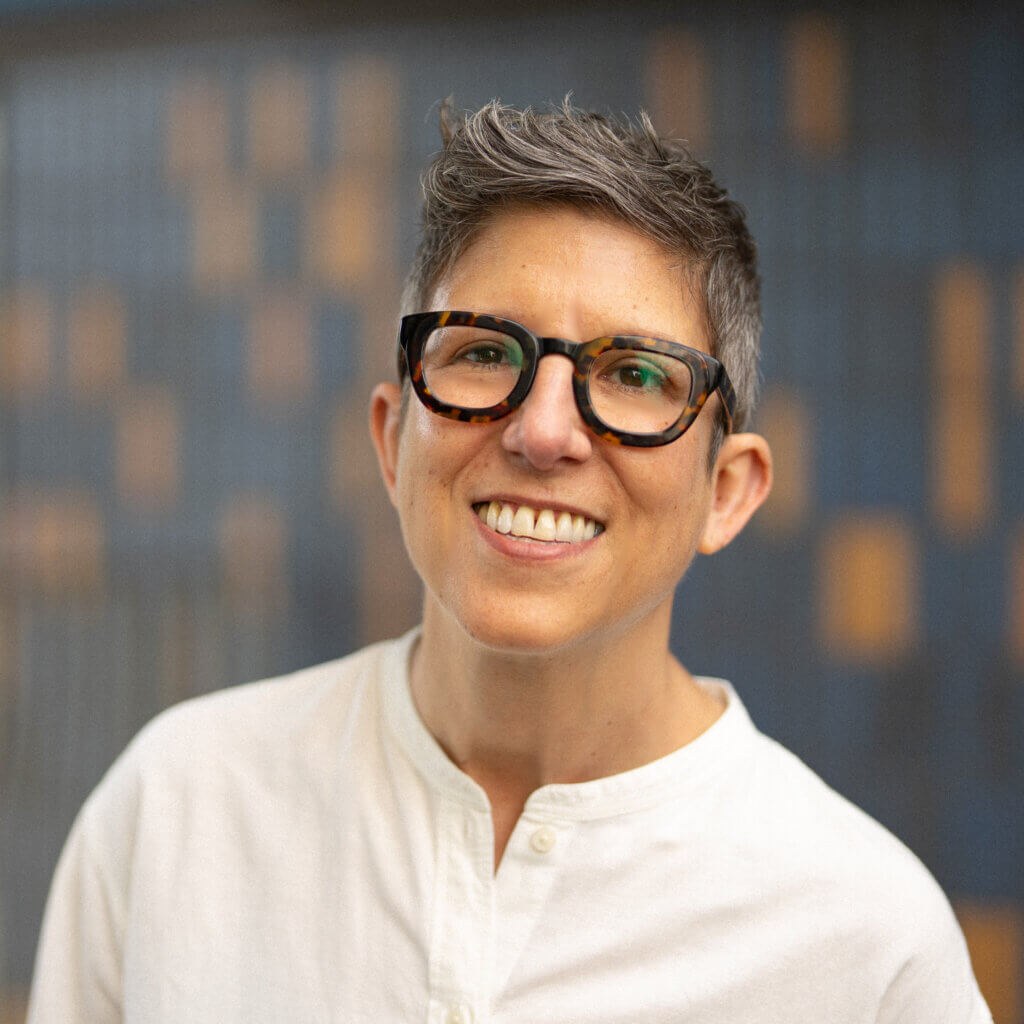
Michelle Memran is a documentary filmmaker, journalist, and dementia advocate whose work threads collaborative storytelling with social change. A Senior Atlantic Fellow for Equity in Brain Health at UCSF’s Global Brain Health Institute, she works to challenge stigma by amplifying the voices of those living with dementia.
A former reporter and researcher for Newsweek, Vanity Fair, and The New York Times Magazine, Michelle now co-creates media projects that reframe cultural perceptions of illness, identity, and creativity. Her award-winning film The Rest I Make Up — a portrait of playwright María Irene Fornés and her creative life after an Alzheimer’s diagnosis — premiered at MoMA in New York City and continues to screen worldwide.
She is currently working on several independent documentary film projects and a dementia awareness media campaign. She divides her time between New York and San Francisco.
Learn more about Michelle’s work: michellememran.com • @memranny on Instagram • LinkedIn
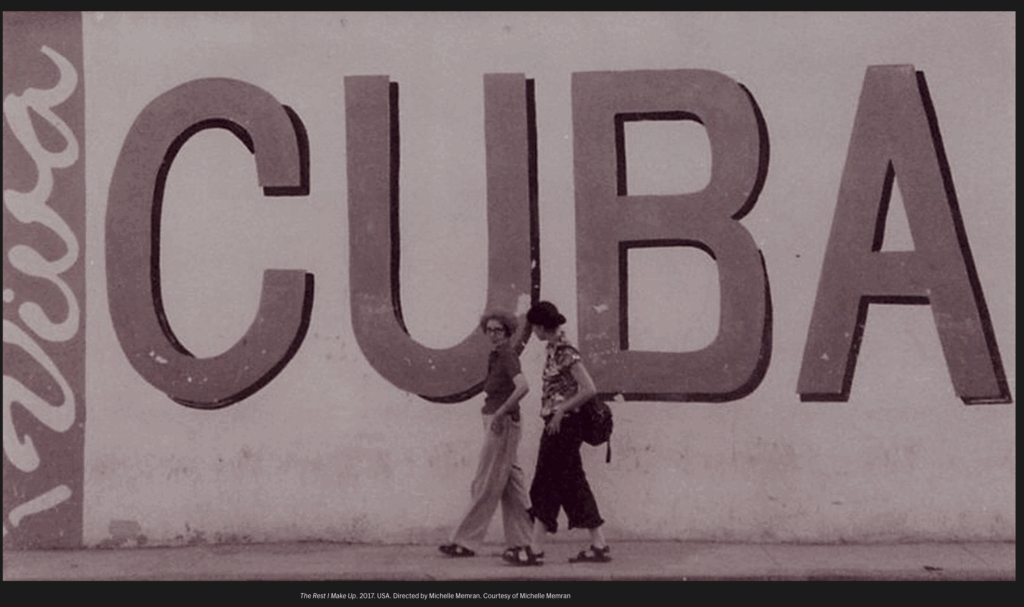
Q&A with Michelle
Why did you apply for the library’s artist in residence program?
This residency felt like a rare convergence of everything I care deeply about: memory, media, advocacy, and archives. As a documentary filmmaker and dementia advocate, I’ve long been drawn to the idea that how we tell stories — especially around illness — can either reinforce stigma or create space for connection, understanding, empathy, and action.
The UCSF Library’s HIV/AIDS Epidemic Collection offers such a powerful example of the latter. Those early campaigns didn’t just raise awareness; they changed hearts, policies, and lives by humanizing a deeply stigmatized diagnosis. That model — urgent, artful, and rooted in real people — is precisely what dementia narratives need right now.
I’ve spent over a decade collaborating with people living with dementia who are pushing back against erasure. They’ve taught me that stigma doesn’t come from a diagnosis; it comes from the dominant stories we tell about it. This residency is an opportunity to reimagine those stories, drawing strength and structure from the HIV/AIDS advocacy playbook.
What are you most excited to work on?
I’m most excited about reimagining visual and narrative messaging around dementia and doing it in collaboration with those who are most impacted. Using the UCSF Library’s archives as inspiration, I’ll be creating advocacy posters, buttons, videos, and other media that mirror the boldness of early HIV/AIDS campaigns. These materials reflected the life-and-death urgency of these illnesses in the 1980s and 90s, and they weren’t created for an online audience. Many of these pamphlets and information packets were distributed directly to people face-to-face. They created conversations in real-time with people living with HIV/AIDS, and gave people permission to speak, act, and advocate. A personal exchange alone goes a long way in reducing stigma. What if we adapted that approach to dementia? What if we made it personal, tactile, artful, and unflinching?
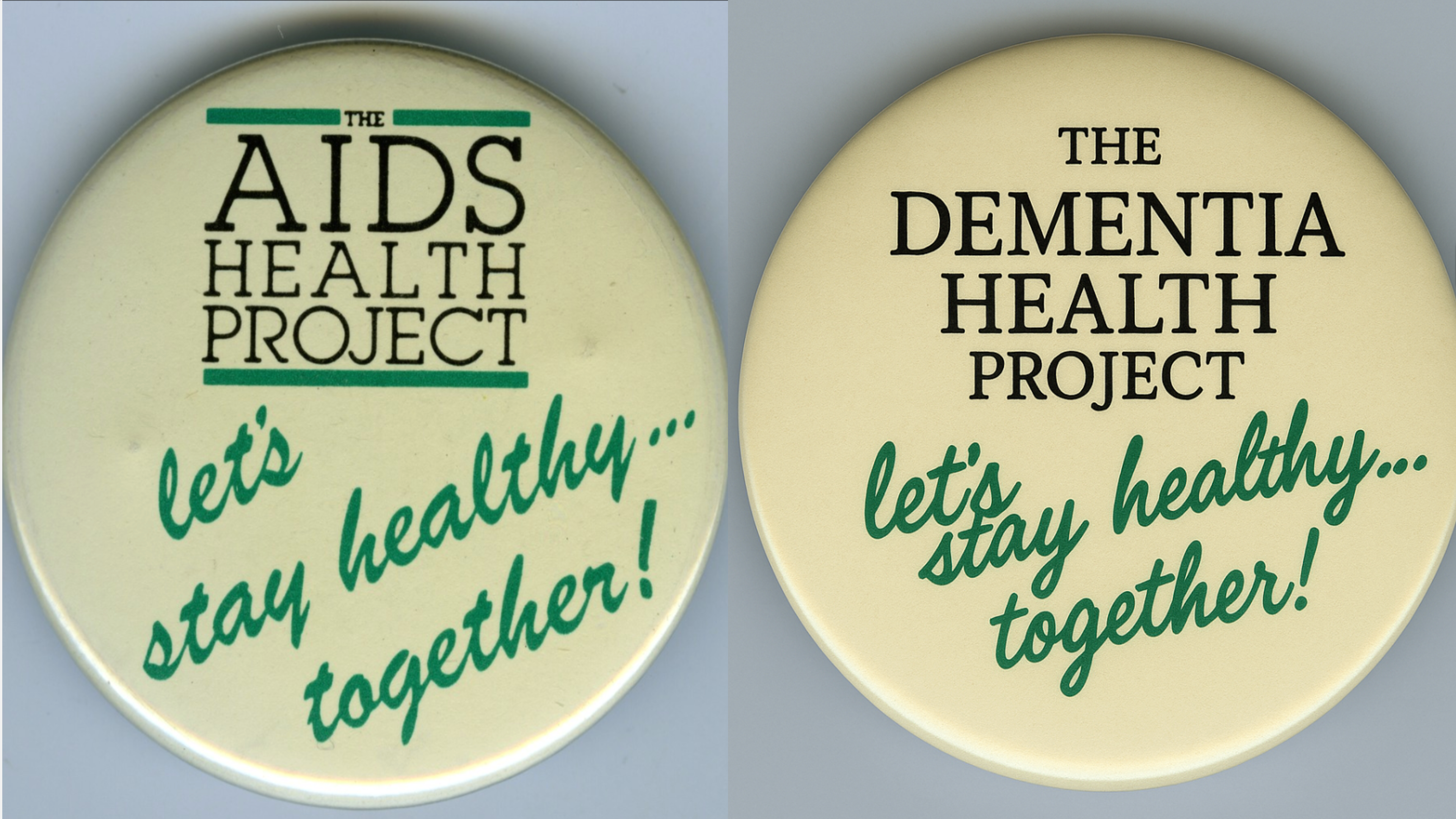
One project I’m especially excited about involves intercutting interviews with early HIV/AIDS activists and people currently living with dementia. What happens when we put these voices in conversation — people who’ve experienced the consequences of stigma firsthand, and who’ve used storytelling and activism to create change?
What challenges do you foresee?
One challenge is making sure we don’t oversimplify or conflate two very different conditions. Both HIV/AIDS and dementia are complex, multifaceted umbrellas that encompass a wide range of diagnoses and lived realities. While they’ve each been shaped by stigma, the stories we tell must honor their differences — medically, socially, and culturally – and stay rooted in the specific communities they affect.
It’s also important to avoid generalization. Just as AIDS was never one story, dementia isn’t either. That diversity is central to this project — and part of what makes it both challenging and meaningful.
Logistically, balancing archival research, creative production, and deep collaboration within a one-year residency is ambitious. But that complexity is also where the power of the work lies.
What is the role of the arts in the health sciences?
We often treat art and science as separate worlds — but both are creative processes, and they often inform each other more than we realize. Now more than ever, we need to collaborate across disciplines and use the power of art to help communicate the urgency and humanity of the health sciences.
Art offers new ways of seeing and processing public health, illness, and care — especially when language alone isn’t enough. It humanizes data. It invites empathy. It makes the invisible visible, and the stigmatized speakable. In the fast-paced world of health sciences, the arts help us slow down, reflect, and reimagine what care and communication can look like.
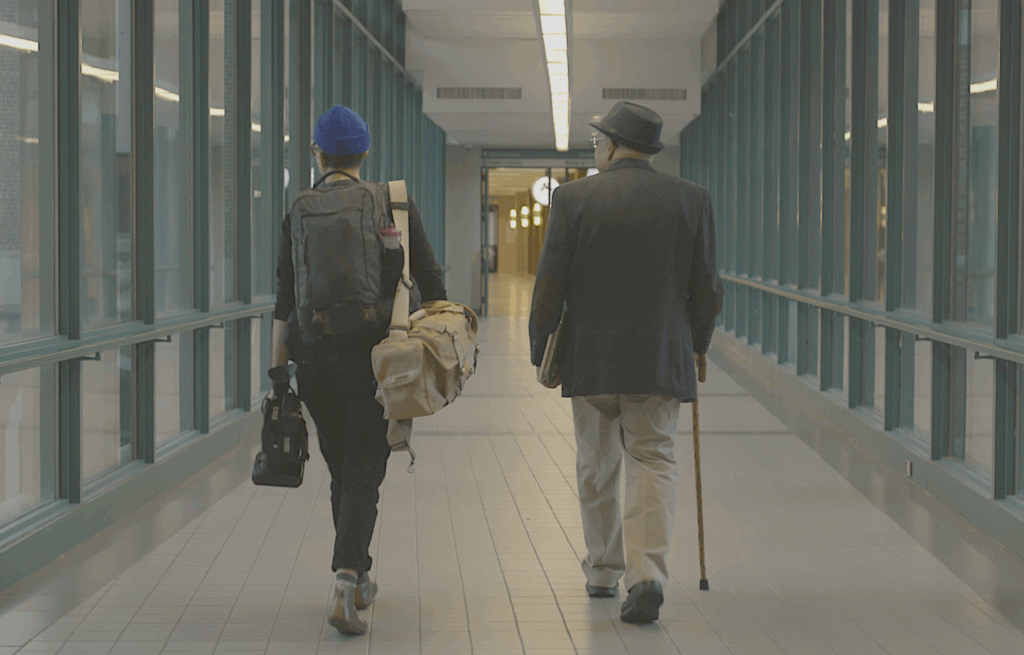
Rather than existing apart from science, the arts bring essential dimensions to it — emotion, narrative, context, and meaning — all of which are vital to healing, understanding, and justice.
Is there anything else you’d like to share with the UCSF community?
Just gratitude. I’m honored to be in residence here and eager to collaborate with such a thoughtful team of archivists, administrators, media makers, researchers, clinicians, and community members. If you see me in the library or at the Makers Lab — please say hello. This work is about connection, and I’d love to hear your story too!
Thank you to the people behind the program
We are grateful to the following UCSF colleagues for their commitment of time and effort when serving on the 2025 UCSF Artist in Residence review committee:
- Farah Hamade, UCSF graphic designer and 2020 UCSF Library artist in residence
- Susie Kuo, UCSF EVCP, executive analyst
- Dr. Stephen McLeod, UCSF Ophthalmology department, professor and chairman
- Dylan Romero, UCSF Library, operations analyst
- Polina Ilieva, UCSF Library, associate university librarian for collections and university archivist
Featured image: Michelle’s early experiments swapping language for a new dementia media campaign. Source: This is the Way Many People Deal with HIV poster, AIDS History Project – Ephemera, MSS 2000-31, box 7, folder 3, item 18. UCSF Archives and Special Collections.
